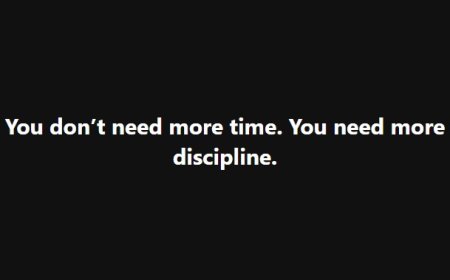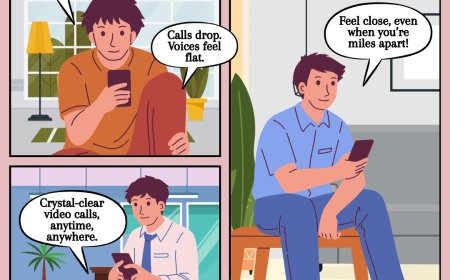The Remote Work Mirage: What the Data Really Says
Remote work and hybrid work reshape workplaces as new data challenges assumptions about productivity and company culture. The return to office debate rages on while evidence suggests flexible arrangements are permanent fixtures.

The Office War Continues
Three years past peak pandemic, we're still fighting about where people should work. CEOs demand office attendance. Employees want flexibility. New data keeps dropping, but it's not settling anything - it's making the argument messier.
Remote work shifted from emergency measure to permanent option for millions. Some companies crushed it. Others struggled hard. Now hybrid work is the compromise everyone's testing, and results are mixed enough that both sides claim victory.
Productivity Numbers Tell Complicated Stories
Early remote work studies showed productivity staying flat or improving slightly. Companies worried less about people slacking off at home. But newer data reveals nuances that mess up the simple "remote equals good" story.
Stanford research tracking 1,600 workers found hybrid work boosted retention without hurting productivity. People with flexibility quit 35% less often. But innovation and mentorship took hits. Those casual conversations sparking ideas? They happen way less over Zoom, affecting company culture long-term.

Microsoft analyzed their own collaboration data and found something concerning about remote work. Teams became more siloed. People talked more within immediate groups but less across departments. Those weak ties between different company parts? They died fast.
Where remote work wins:
- Individual contributor roles with clear deliverables
- Jobs needing deep focus without interruptions
- Experienced workers who know their jobs cold
- Roles using async communication effectively
Where remote work loses:
- New employees learning systems and norms
- Roles needing spontaneous collaboration
- Creative work benefiting from in-person brainstorming
- Jobs requiring rapid decision-making
Company Culture Takes Real Damage
Ask any CEO worries about remote work, and "company culture" comes up within thirty seconds. The data actually backs their concerns. Building and maintaining company culture is genuinely harder when people aren't physically together.

Onboarding sucks remotely. New hires struggle understanding unwritten rules, figuring out who to ask for help, building relationships with teammates. Retention rates for remote hires are measurably worse than people who started in-office then went remote.
Mentorship suffers too. Those five-minute hallway chats where senior people drop knowledge to junior staff? Gone. Junior employees report feeling more isolated and learning slower in fully remote setups. That's a real problem for career development affecting company culture.
The Return to Office Push Gets Ugly
Major companies mandate office returns now. Amazon wants five days. Goldman never really stopped. Google, Meta, Apple - all pushing more in-person time. Their reasoning? Collaboration, innovation, and company culture need physical proximity.
Employees aren't buying it. Survey after survey shows workers rank flexibility as a top job factor now. Many would take pay cuts keeping remote work options. Some quit rather than return full-time. This is a genuine standoff.
The data companies cite for return mandates often seems cherry-picked. They'll point to innovation metrics dropping but ignore productivity staying stable. They'll emphasize company culture concerns but downplay retention improvements from flexibility.
Meanwhile, companies staying fully remote or hybrid report different experiences. GitLab, Automattic, and others prove remote work functions at scale. Their company culture looks different than traditional offices, but different doesn't automatically mean worse.
What Really Drives These Decisions
Real talk - lots of return to office pressure isn't about productivity data:
Actual motivations:
- Real estate: Long leases on expensive space sitting empty
- Control: Managers uncomfortable not seeing teams physically
- Optics: Looking busy matters to executives more than output
- Hidden layoffs: Strict mandates make people quit voluntarily
- Status: Office space as executive status symbol
That's cynical but true. If productivity stayed solid and retention improved with remote work, why the hard push for returns? Follow the money.
Financial pressures:
- Billions in real estate sitting underutilized
- Local tax incentives tied to occupancy
- Downtown businesses lobbying politicians
- Commercial real estate values tanking
- City budgets depending on office workers
Hybrid Work As Messy Middle Ground
Most companies landed on hybrid work as compromise, but implementation varies wildly. Some mandate specific days everyone comes in. Others let teams decide. Requirements range from two to four days weekly.

Hybrid work appeals to employees more than full-time office mandates but less than full remote. Meanwhile, it creates operational headaches - who pays for home offices? How do you manage parking with rotating schedules? What about people who moved assuming remote work was permanent?
Data on hybrid work effectiveness still emerges. Early signs suggest it captures some benefits from both models while introducing new complications. Coordination is harder when you're never sure who's in the office when. Company culture improves versus full remote but doesn't match fully in-person vibes.
Where This Eventually Settles
Bet on variety. Different companies will land on different models based on their specific work, values, and industry. Tech companies might stay flexible. Financial firms might push harder for in-person. Creative agencies might embrace hybrid work enthusiastically.
Employee leverage matters most. In tight labor markets, workers demand flexibility. In loose markets, companies mandate returns. Right now we're somewhere between, which is why the debate rages.
Likely scenarios ahead:
- Most knowledge work settles into 2-3 day hybrid models
- Fully remote remains available for specific roles
- Return mandates concentrate in traditional industries
- Geographic pay differences emerge based on remote options
- Offices redesigned for collaboration versus individual work
Making This Work Going Forward
For remote work and hybrid work to succeed long-term, companies need better systems beyond just Zoom and Slack. Actual processes designed for distributed work rather than office work shoved through digital tools.
Company culture in flexible environments requires intentionality. You can't rely on osmosis and proximity. You need deliberate rituals, communication norms, and relationship-building practices. Companies figuring this out see positive results. Those treating remote work like temporary inconvenience struggle badly.
What's Your Reaction?
 Like
0
Like
0
 Dislike
0
Dislike
0
 Love
0
Love
0
 Funny
0
Funny
0
 Angry
0
Angry
0
 Sad
0
Sad
0
 Wow
0
Wow
0





































































































































































































